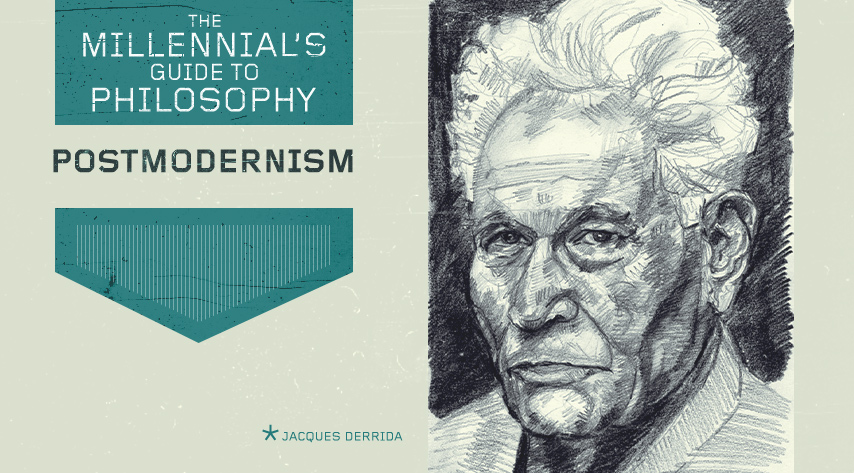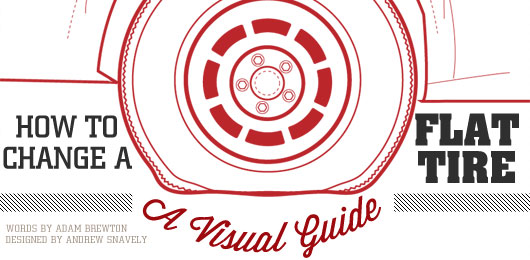May, 1968.
Thousands of young Parisian students crowded the streets, chanting slogans, waving banners, and shouting for the release of scores of political dissidents and activists who had been arrested and imprisoned weeks earlier. As night fell the would-be revolutionaries barricaded the Latin Quarter, determined not to end the occupation until the government met their demands.
The evenings that followed were full of excited speculation. The revolutions that had changed Russia, China, and Cuba had finally arrived in France. The exploitation of the poor and working class had finally reached its boiling point and glorious uprisings would surge across the country and perhaps even the world.
But it was not to be.
The leaders of the protesters agreed to compromises with the French government, and the striking students and workers returned to their universities and their factories. The promise of change had been betrayed, and many were left to wonder if the prophecies of a brave, new world were ever true at all.
This was the birth of Postmodernism.
Derrida sketch by Arturo Espinosa under Creative Commons
Who Thought It Up
While rooted in concepts pioneered by such philosophers as Nietzsche, Heidegger, and Camus, the most formative event of the young philosophy came in the disillusionment following the failed strikes of 1968. Many of the protestors, young socialists and anarchists had been confident that revolution was inevitable – that all history had been leading up to this very conflict where new forces would sweep away the old. When these protests ended, not with a bang but a whimper, many concluded that there was no overarching path of history.
Of course, it gets more complicated than that.
As you’ll soon discover, the entire point of the philosophy is that it’s not so much “about” something as it is a rebellion against everything – this definition included. Keep that in mind, it’ll make things clearer as we forge ahead.
What It’s All About
No Meta-Narratives
“Simplifying to the extreme, I define postmodern as incredulity toward metanarratives . . . The narrative function is losing its functors, its great hero, its great dangers, its great voyages, its great goal. It is being dispersed in clouds of narrative language…”
Jean-Francois Lyotard, “The Postmodern Condition”
Since the dawn of time, humanity has been attempting to discover a system to make sense of life, the universe, and everything. Where did we come from? Where are we going? What’s the final conclusion of our species’ existence? Many religions provided a grand picture of a struggle between good and evil, culminating in an apocalypse. Others have claimed that history can be boiled down to the battles of concepts and philosophies. Still others have asserted that it’s about a struggle between social classes.
Who’s right?
According to Postmodernism: Nobody.
Nothing guides the course of history and, at the end of the day, stuff just “happens”. Chaos and random chance, often so small we’d never notice it, are responsible for the way the world is. Now that doesn’t just apply to history, it applies to our entire worldview. If there is no real way of categorizing or measuring history, there’s no real way of categorizing or measuring anything. Sexuality is probably where we see this most pronounced, with the idea that there are no distinct “sets” of people. Straight, gay, bisexual – all of that fails. What you are is what you are, and trying to make yourself (or anyone else) fit into some grand scheme is as pointless as it is impractical. Life is just too complex to be hacked down into neat little pieces.
Deconstructionism
“In old times, you see, a man who wanted to educate himself . . . [he] would have set to work to study all the classics and theologians and tragedians and historians and philosophers . . . all the intellectual work that came in his way. But in our day he goes straight for the literature of negation.”
-Leo Tolstoy, “Anna Karina”
While by no means the founder of Postmodernism, French thinker and literary critic Jacques Derrida was certainly one of the men who helped make it what it is. In a 1963 paper Derrida began to point out what he believed to be a chief failing in our ability to truly understand the meaning of anything. Our thoughts, our theories, our perspectives – all of it was based on faulty presuppositions. He called this process “deconstructionism”.
At its most basic, “deconstructionism” holds that meaning (of anything) is given, rather than inherent. In other words, something can only be considered “strong” when compared to something that’s “weak”. That might sound simple, until we start taking into account that “strong” and “weak” both have a host of different meanings when applied in different contexts. What makes a building strong is not what makes an argument strong and certainly not what makes a man strong. Even worse, we all have vastly diverse opinions on what makes a man “strong”. Are we talking about strength of will or strength of character? And what is strength of character? Heck, even the term “deconstructionism” can be deconstructed.
Pluralism
“Things are set up as contraries that are not even in the same category. Listen to me: the opposite of radical is superficial, the opposite of liberal is stingy; the opposite of conservative is destructive. Thus I will describe myself as a radical conservative liberal . . . Beware of those who use words to mean their opposites. At the same time have pity on them, for usually this trick is their only stock in trade.”
–R. A. Lafferty, “The Flame is Green”
It’s not unusual for folks to accuse Postmodernism as not really being “about” anything, and more than likely you’d get Postmodernists wholeheartedly agreeing with that. If Postmodernism had to be about something, it’s about skepticism – rebelling against the tyranny of definitions and structure. Arriving in an age when the clash of cultures was already underway, Postmodernists argued that one shouldn’t be forced to choose between conservative vs liberal, or left vs right, or Eastern vs Western, or communal vs individual. With so much chaos many concluded that it was impossible for anyone to claim a monopoly over truth, and frankly, why should one have to choose? If one person chooses to live a life of simplicity and another person chooses to pursue decadent luxury, who can say which is better? So long as people are free to choose, does it even really matter?
Postmodernism, you have to remember, didn’t grow out of a need to make sense of the world but out of a failure of the world to make sense. That might sound infuriatingly vague, and again, you wouldn’t be wrong. Rather than trying to think of the philosophy as instructions on whereto go, try to think of it as a guide on howtogetanywhere. The pieces will start to fall into place, and all of that leads to the concept of…
Acceptance
“The preceding merely defines a way of thinking. But the point is to live.”
-Camus, “The Myth of Sisyphus”
So where do we go from here? If nothing can be absolutely known, and if there’s no absolute truth, how on earth are we supposed to do, well, anything? The Postmodernist answer is simple: Choose.
French philosopher Albert Camus, who contributed heavily to Postmodernist philosophy, argued that life simply does not make sense. That even if there is meaning, our ability to comprehend it will always be lacking. But life isn’t a means to an end, it is the end. We have to go to our graves “unresolved”, but with the knowledge that we experienced as much as we could. Definitions, categorization, grandiose pictures of how the universe is supposed to be – all of that only keeps us from being all that we can be. Claiming to have figured out the world only keeps us from figuring out ourselves. Leave definitions up to someone else.
Postmodernism is still young as philosophies go, and while there’s no shortage of criticisms being lobbied at it, the advantages of the concept can’t be denied.
You’re given the freedom to make yourself whatever you want to be. You want to eat breakfast on the roof or move to Bali to work as a professional pearl-diver and handbag salesman? Well who’s to say that you shouldn’t? Radical skepticism might not provide any answers, but what it does give us is options.
What It Means For Us
With all the radical doubt and relativism that goes into Postmodernism, some might be tempted to write off the whole philosophy as deeply pessimistic. And while there may be something to be said there, “cynical” is just one way of seeing it. As a way of living life it could just as easily be painted as new and exciting.
The philosophy smashes through centuries of preconception on what the world is supposed to be, and provides us with a fresh appreciation for everything. What is art? What is music? What is healthy? What’s balanced? What’s noble?
If a how-to book on life is what we’re searching for let’s be clear: Postmodernism doesn’t have the answer for us. Unlike other philosophies, Postmodernism doesn’t attempt to present a set of final conclusions about the nature of the universe but rather, a place to start. In this modern world, full of conflicting ideas and truths, we need a way to effectively engage with all of them and do with them what we will.
We have to open ourselves up. Every new idea, every new experience, every new interpretation could have some kind of value. More often than not, the folks who claim to have it all figured out are the most clueless of all of us, and it’s going to take skepticism, tolerance, and a healthy sense of adventure to get through all the highs and lows. Always be reinventing yourself. Always be looking for something new and take joy just in the fact that you’re looking.
Life’s a rollercoaster: Are you going to spend your time trying to figure out the mechanics behind it or just enjoy the ride?
Required Reading
The Myth of Sisyphus: and Other Essays by Albert Camus – While not entirely a Postmodernist himself, Camus’ The Myth of Sisyphus offers us many of the principles that the philosophy was built upon. Calling for a revolt against the absurdity of life, Camus provides stirring challenges to rise up and live it to its fullest.
Writing and Difference by Jacques Derrida – Postmodernist literature is notoriously difficult to read, and Jacques Derrida’s collected work is no different. Still, for the bold (or masochistic) reader Writing and Difference provides the key points of Postmodernism’s critique of the world we live in and how little we truly understand it.
The Hitchhiker’s Guide to the Galaxy by Douglas Adams – There are plenty of books out there which will try to tell you what Postmodernism is, but precious few that are able to show you that philosophy in action. One such exception is the madcap classic The Hitchhiker’s Guide the Galaxy – a hilarious, absurdist adventure to find the ultimate answer to life, the universe, and everything.
The Millennial’s Guide to Philosophy
- The Millennial's Guide to Philosophy: Stoicism
- The Millennial’s Guide to Philosophy: Epicureanism
- The Millennial’s Guide to Philosophy: Nietzsche
- The Millennial’s Guide to Philosophy: Postmodernism
- The Millennial’s Guide to Philosophy: Confucianism
- The Millennial’s Guide to Philosophy: Taoism
- The Millennial’s Guide to Philosophy: Sartre
- The Millennial’s Guide to Philosophy: Kierkegaard
- The Millennial’s Guide to Philosophy: Camus
















![It’s Time to Begin Again: 3 Uncomfortable Frameworks That Will Make Your New Year More Meaningful [Audio Essay + Article]](https://www.primermagazine.com/wp-content/uploads/2025/01/begin_again_feature.jpg)